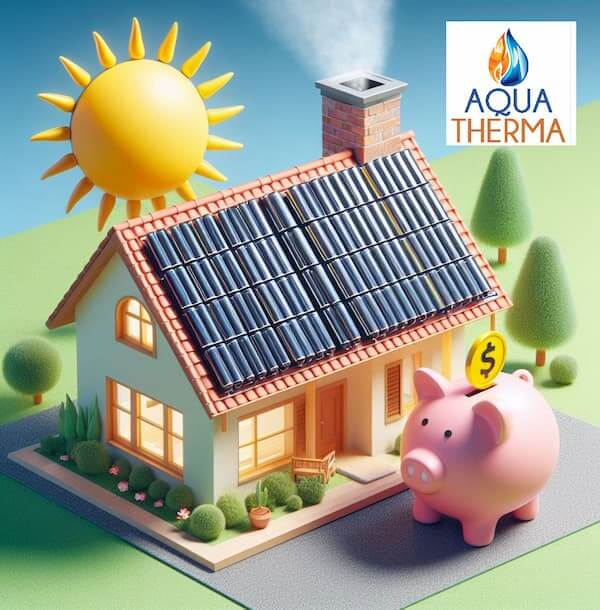Cost Efficiency:
Solar Geyser Retrofits: While solar geyser retrofits may have higher upfront costs compared to gas geysers, they offer significant long-term cost savings. By harnessing solar energy, these systems can substantially reduce or even eliminate electricity bills associated with heating water. Over time, the savings on energy bills often outweigh the initial investment, making solar geyser retrofits a cost-effective choice.
Gas Geysers: Gas geysers typically have lower upfront installation costs compared to solar geyser retrofits. However, they rely on fossil fuels, which can result in ongoing operational costs. While gas may be cheaper than electricity in some regions, ever increasing gas prices and the need for regular refills or deliveries can impact the overall cost efficiency of gas geysers in the medium to long term.
Environmental Impact:
Solar Geyser Retrofits: Solar geyser retrofits are environmentally friendly, as they utilize renewable energy from the sun to heat water. By reducing reliance on fossil fuels, solar geyser retrofits help lower greenhouse gas emissions and contribute to a cleaner environment.
Gas Geysers: Gas geysers burn natural gas or liquefied petroleum gas (LPG) to heat water, emitting carbon dioxide and other pollutants into the atmosphere. While gas geysers are generally more efficient than electric resistance water heaters, they still contribute to air pollution and climate change.
Suitability and Reliability:
Solar Geyser Retrofits: Solar geyser retrofits are well-suited for regions with ample sunlight, making them an excellent choice for many areas in South Africa. However, they may be less effective in areas with frequent cloud cover or limited sunlight hours.
Gas Geysers: Gas geysers provide instant hot water and can operate independently of weather conditions, making them reliable in areas where sunlight is inconsistent. They are suitable for both residential and commercial applications and can be installed in locations without access to electricity.
Maintenance and Lifespan:
Solar Geyser Retrofits: Solar geyser retrofits generally require minimal maintenance once installed properly. With fewer moving parts and no reliance on combustible fuels, they often have longer lifespans than gas geysers.
Gas Geysers: Gas geysers require regular maintenance, including checks for gas leaks, burner cleaning, and ventilation inspection. Additionally, gas geysers have a finite lifespan and may need to be replaced or repaired more frequently than solar geyser retrofits.
In summary, while both solar geyser retrofits and gas geysers offer hot water solutions, solar geyser retrofits stand out for their long-term cost savings, environmental benefits, and minimal maintenance requirements, making them a compelling choice for many households and businesses. However, the suitability of each option depends on factors such as location, budget, and individual preferences.
